Cardiac Rehabilitation —— A Workbook for use with Group Programmes
----- 心脏康复 - 群体程序使用工作手册
Abbreviations Used in This Book. About the Authors. Preface. Chapter 1: Multidisciplinary Cardiac Rehabilitation. Background. Cardiac rehabilitation. Does cardiac rehabilitation work? Recent evidence for the efficacy of cardiac rehabilitation. Comprehensive cardiac rehabilitation. Comprehensive cardiac rehabilitation in Gloucestershire. The British Association for Cardiac Rehabilitation Standards and Core Components for Cardiac Rehabilitation (2007). Chapter 2: The Cardiac Rehabilitation Programme in Gloucestershire. Cardiac Rehabilitation in Gloucestershire. Where the CR service is delivered. What does CR look like in Gloucestershire? Individual CR. The Individual CR Psychology Service. Attendance at CR in Gloucestershire. Health outcomes. Professional development of the CR team. Psychology and Cardiac Rehabilitation. Psychological factors. Anxiety and depression. Psychological factors and health outcomes. Illness perceptions. Illness perceptions and cardiac events. Illness perceptions and CR. Control theory. Applying psychological theory in CR. Anxiety at assessment. Illness perceptions at assessment. Returning home. The CR group. Chapter 3: The Exercise Programme. Risk stratification for exercise. Using the information. Supervision following exercise. Exercise practical sessions. Calculating heart-rate training ranges. Exercise Practical. Exercise set-up. Warm-up. Circuit exercise. Cool-down. Use of music. Gym programmes. Seated exercises. Chapter 4: Preparing for the First Session. Staff background and training. Eligibility for CR group programmes. The patient pathway. Assessment. Patient invitation. Measurement of outcomes. Timing of CR. Open/closed groups. Venues for CR. Health, safety and essential equipment. Chapter 5: Coronary Heart Disease, Psychology and Exercise (Week 1). 1. Introduction to the Cardiac Rehabilitation Programme. 2. Coronary Heart Disease and its Risk Factors. Coronary heart disease. Angina. Angioplasty and stents. Coronary artery bypass graft (CABG). Heart attack (or myocardial infarction). The risk factors for coronary heart disease. 3. The Psychological Side of Having a Cardiac Event. 4. Goal-setting and Pacing. The problem: "activity cycling". The solution: goal-setting and pacing. 5. The Exercise Programme. Monitoring the intensity of exercise. Heart rate. Breathing rate. Rate of Perceived Exertion/Exercise Scale. Exercise diaries. Chapter 6: Aerobic Exercise and Stress (Week 2). 1. Exercise: What Sort and How Much? Session set-up. Exercise-what sort and how much? Activity and exercise. 2. Exercise Practical. 3. Stress and Coronary Heart Disease. Prolonged stress and coronary heart disease. Understanding stress. The effects of stress. The gradual build-up of stress. When stress becomes a problem. Managing stress. Abdominal breathing. Chapter 7: Warming Up, Cooling Down, Angina and Hypertension (Week 3). 1. Warm Up and Cool Down. Warming up. Types of warm-up activity. Cooling down. How do we cool down? Stretching. 2. Exercise Practical. 3. Angina. What is angina? Symptoms of angina. Treatment for angina. Triggers for angina. Managing angina. What do you do if you are having angina? 4. High Blood Pressure (Hypertension). What should your blood pressure be? How can we lower our blood pressure? Chapter 8: Activities to Avoid, Making Changes for Life and Cholesterol (Week 4). 1. Activities to Avoid at the Moment. What would we regard as heavy lifting? 2. Exercise Practical. 3. Mind and Body Relaxation. Deep muscle relaxation. Mental relaxation. Autogenic relaxation. 4. Making Changes for Life. Why make changes for life? Making changes. Setbacks and maintaining behaviour change. 5. Cholesterol. What is cholesterol? What should our cholesterol level be? How to lower and improve our cholesterol levels. Chapter 9: Enough or Too Much Exercise? Diet and Coronary Heart Disease (Week 5). 1. Enough or Too Much Exercise? 2. Exercise Practical. 3. Diet and Coronary Heart Disease. Oily fish. Fats. Fruit and vegetables. Salt. Alcohol. Chapter 10: The Benefits of Regular Exercise and Making the Most of your Recovery (Week 6). 1. The Benefits of Regular Exercise. 2. Exercise Practical. 3. Making the Most of Your Recovery. Thoughts and feelings. Driving. Physical activities. Holidays. Sex. Chapter 11: Staying Fit, Cardiac Medication and the Future! (Week 7). 1. How to Stay Fit for Life. How to recognise that your exercise levels need to be increased. Dealing with setbacks. Maintaining exercise. How to keep motivated to exercise regularly. BACR Phase IV exercise instructor courses. 2. Exercise Practical. 3. Medication. Secondary prevention. Anti-platelets. Beta-blockers. ACE-inhibitors. Statins. 4. The Future! Follow-up sessions. Setbacks. Planning, pacing and goal-setting. Managing stress. Appendix 1: Assessment Document. Appendix 2: Letter of Invitation. References. Index.
{{comment.content}}
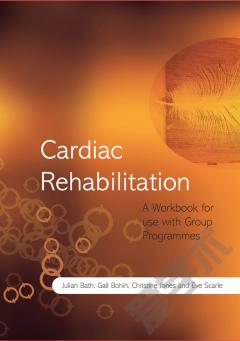
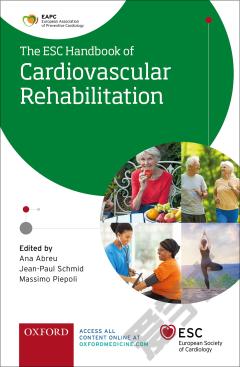
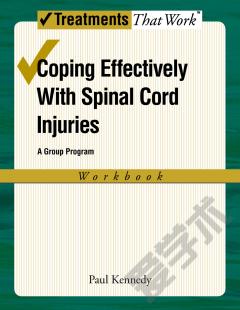

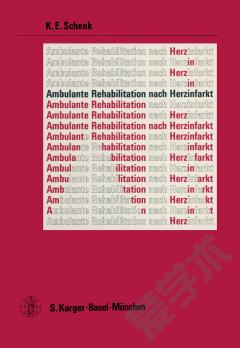
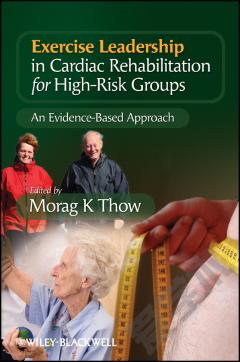
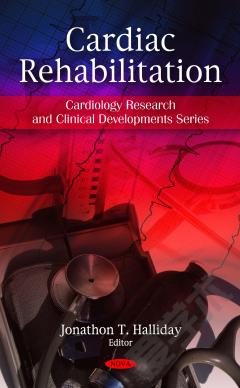

 京公网安备 11010802027623号
京公网安备 11010802027623号